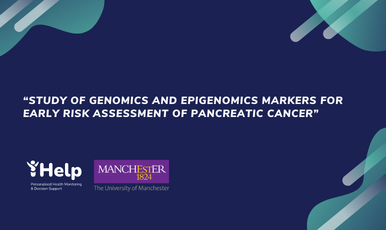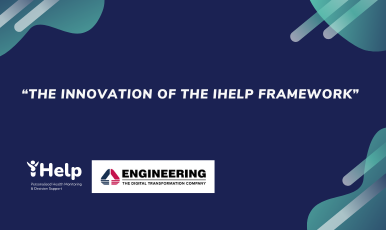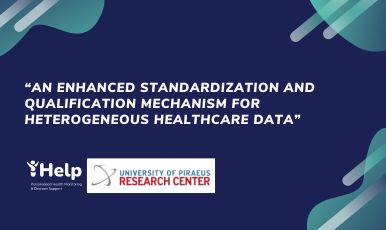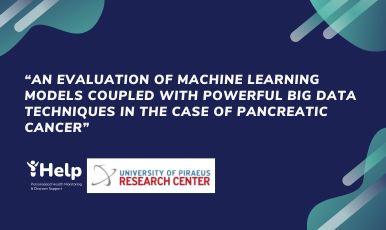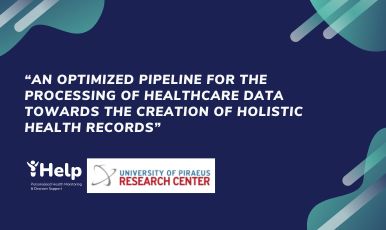The University of Manchester (UoM) team will conduct a pilot study of Genomics and Epigenomics Markers for Early Risk Assessment of Pancreatic Cancer.
The UoM team will recruit 1,500 participants in the community including males and females to use the lifestyle-related pancreatic cancer risk assessment. Participants with a higher than the average population risk will be invited to participate in the prevention group. It will be used the iHelp package (which consists of questionnaires, and application activity tracking data including physical activity, diet, and sleep) to assess baseline and after-prevention period data. The UoM team will also track physical activity. The activity trackers can be connected to the iHelp mobile application and allow recording of individual activity, sleep, and heart rate data (etc.).
Research participants can freely decide whether they wish to use the activity trackers, how they wish to use them, and for how long. When it comes to health recommendations provided by iHelp, the recommendations will be choice-based. This means participants will see some behavior change recommendations (e.g., stop smoking or physical activity) – but will be able to select only activities (and engagement level, e.g., walk 1000, 2000, or 10000 steps a day) that fit their needs and are feasible considering current health, motivation, and lifestyle.
As participants progress with their lives, activities, and health goals/ choices they had selected earlier (via the iHelp platform), they will be provided feedback in relation to their progress. The research team will also measure omic markers including genetic predisposition to pancreatic cancer and biological clocks. The data will enhance the knowledge of how improving lifestyle can modify biological clocks.
The first group of participants will be recruited on the 9th of July 2022. This is an exciting time!
The University of Manchester team has been working in collaboration with the Graham Fulford Charitable Trust the partner that helps the research team recruit men and women from the community to join our study.

